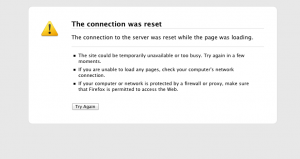I was able to secure a scholarship to TEDMED 2012, thanks to TEDMED organizers and Johnson and Johnson. TEDMED is an annual feast of Health and Medicine innovators and has recently moved to Washington DC from San Diego.
You can see the great summaries of TEDMED on their blog page. Since there are so many sessions and such variation in topics (Medicine, Healthcare, Patients, Doctors, Artists etc), the experience for every participant will be different. This is my summary of the talks that I liked. I hope the TEDMED community will post the videos soon so that everyone will enjoy them.
Jonathan Eisen‘s talk was about useful microbes in our life and how our modern life is removing these microbes (over cleanliness!). He was diagnosed with Diabetes and this got him studying about how the lack of useful microbes might be causing the auto immune diseases like Diabetes, Allergies etc. One of the startling findings he mentioned related to how kids born by C-section are at a 3-4 times higher risk for auto immune disorders like allergies and type-1 diabetes. He is also an avid blogger and is on twitter too.
Ben Goldacre talked about how negative results are not published in medicine and how they affect the way physicians and public perceive the efficacy of new drugs. He gave the example of a anti-depressant drug for which there were 41 published studies of the drug with 38 positive and 3 negative results. This made everyone think that the drug was very useful. There were other 33 studies with negative results that did not get published! Imagine how differently you would look at a drug where 38 studies are positive and 36 negative as opposed to one where 38 are positive and only 3 are negative! He is trying to get these negative studies into the spotlight. To learn more, you should check out this video by E-Patient Dave and follow him on twitter.
In my previous post about TEDxMaastricht, I had talked about how the TED talks do not have a Q&A in the end. I felt that this format hurt the conversation since there were some talks which could have used some conversation. There was a talk from Jon Cohen, from Quest Diagnostics on if patients can be like consumers. In my opinion, it did a tremendous disservice to empowered patients by stating that patients will judge the quality of a doctor or hospital by things like availability of donuts in the waiting room. I feel like this might be the difference maker if all things are equal but in the example quoted by the speaker (Hernia surgery), I feel patients do make the right judgement. It is to judge quality of health delivery based on outcomes (did the patient get all the information they needed about the surgery, did it help them? etc). The speaker also said that medicine quality should be based on “judgement” and “experience” of the doctor. I felt that even though “judgement and experience” are important from a medicine’s point of view, it does not matter to a patient as long as the outcome does not match expectations. I saw that many people disagreed with the speaker on twitter. A conversation at TEDMED would have helped clarify the speaker’s thoughts.
Dr. Atul Butte of Stanford University had an interesting talk about how science is now democratized thanks to the web. Just like Elance.com and odesk.com brought outsourcing to technology and other tasks, there are websites like Assaydepot.com which is bringing outsourcing to science, pharmacology and toxocology tests on the web. I had never heard of this and I was very surprised to find that you can even outsource your mice tests!
We also heard from Dr. Diane Kelly who has done amazing original work on invertebrate penises (yes, penises!). She described her research in a very fun and very easy to understand way. Her research is related to answering the question of what is unique of the penis structure that helps in maintaining its shape during erection. I cannot wait to see the video of this talk. She blogs at Science Made Cool.
There were also artists who performed and showcased their works at TEDMED. I got to meet Regina Holliday, of the walking gallery fame, in person. She paints to give the patient voice in health information technology. Her story is very powerful and is a must read on her blog!
We heard the story of Ed Gavagan. He was stabbed on the street in some gang initiation ritual and he survived due to the timely actions of the emergency personnel and the doctors. His video will be very powerful to watch since no words can describe his experience narrated on stage.
There were many many more powerful talks. These are the ones that I remember. I will post more thoughts as and when my memory helps me in the coming days. If you saw some talks that should be included, please do let me know so that I can write up another post with the ones that I missed here!

 Follow
Follow
